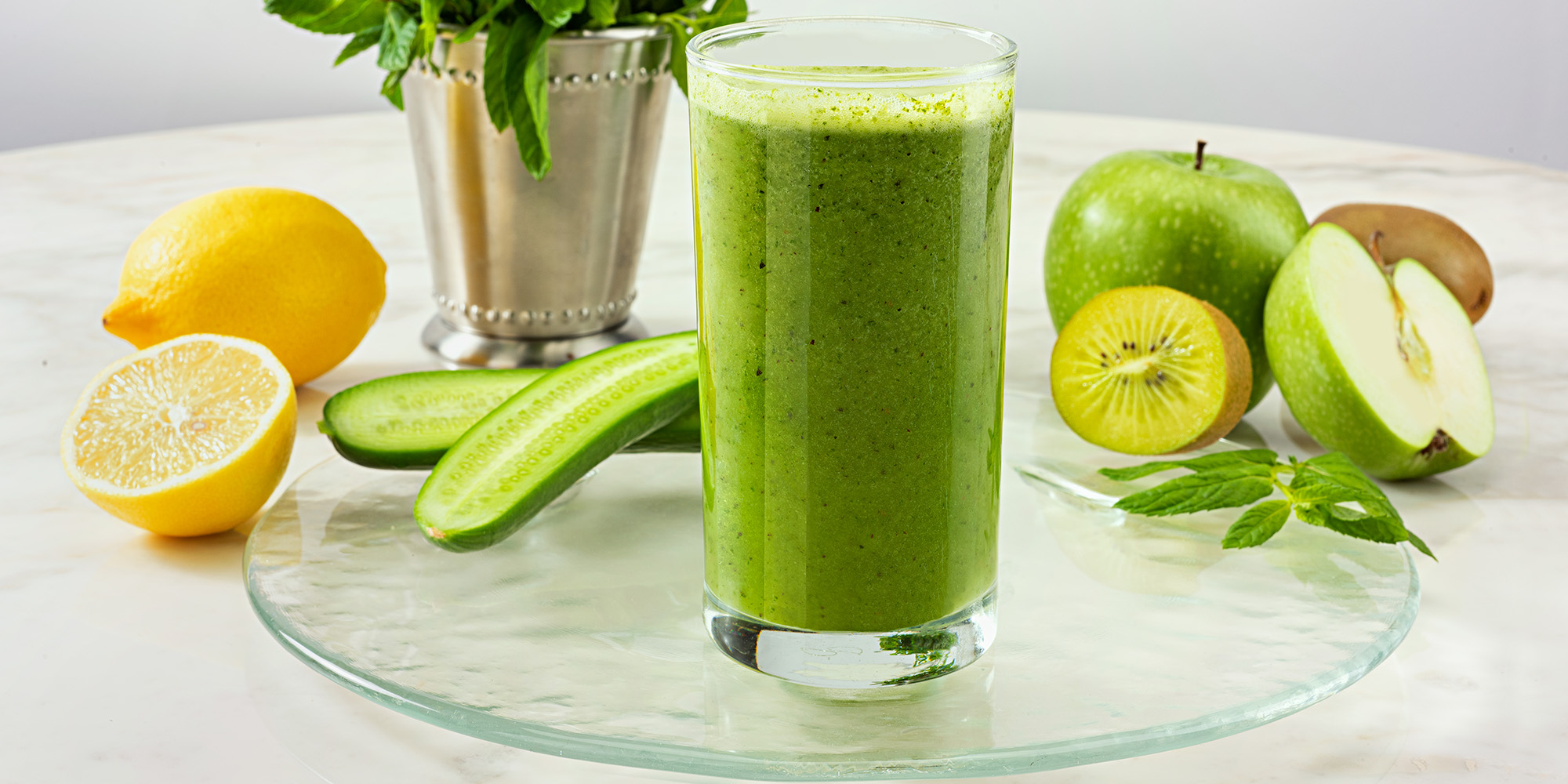5 Popular Diets Debunked and 7 Tips for Healthy Weight Loss
August 3, 2022
Categories: Health & Wellness, Bariatrics, Digestive Health
Tags: weight loss

Anyone who’s tried to lose weight knows how difficult it can be. If only there were a quick, effective way to shed pounds that required little effort!
Many popular diets like intermittent fasting, juice cleansings, Keto diets, Paleo diets and gluten-free diets can promise rapid, easy weight loss.
“Fad diets are everywhere,” says Loyola Medicine registered dietitian, Ashley Datinguinoo, RD. “Social media influencers and the media promote different weight loss plans and make them hard to ignore.”
How to spot a fad diet
If you’re curious about the latest diet, you’re not alone. Many people try them, and some achieve a level of success. But most people gain the weight back.
But how do you know if a diet is too good to be true? According to Ms. Datinguinoo, there are some red flags to look for. She advises caution with any diet that:
- Assures a quick fix
- Lists foods as “good” and “bad”
- Provides evidence based on limited research
- Removes one or more food groups from your diet
- Requires the purchase of a book or product
5 popular diets to avoid
Though enticing, most fad diets don’t live up to their promises and can be unsafe. Here are five that fall short:
Diet #1: Intermittent fasting
Fasting is when you refrain from consuming any calories. There are several types of intermittent fasting regimens:
- Alternating days: One day fasting followed by a day where you eat normally
- Modified regimens: You eat about 25% of your daily caloric needs two days per week and a normal diet the other five days
- Time-restricted feeding: There are different variations to this method. They all limit caloric intake during waking hours and fast for eight to 16 hours, the bulk of that time when you sleep.
What are the drawbacks of intermittent fasting?
Fasting can leave you feeling tired, irritable and unable to concentrate, says Ms. Datinguinoo. And because you become very hungry, you are more likely to overeat energy-dense foods when you are not fasting.
What does the science say about intermittent fasting?
Much of the research on intermittent fasting is limited to animal and short-term human studies. This research has found that time-restricted feeding may reduce blood glucose, triglycerides and inflammatory markers, improve cholesterol and promote weight loss.
Despite these benefits, intermittent fasting is not more effective for weight loss than diets with reduced calories and increased physical activity. More research is also needed on the long-term effects of intermittent fasting.
Diet #2: Juice cleansing
Juice cleansing has gained popularity for detoxifying the body. The duration of juice cleanses varies from days to weeks. During that time, you consume only fruit and vegetable juices.
What are the drawbacks of juice cleansing?
While fruits and vegetables contain antioxidants and other nutrients, you eliminate protein, fats and whole grains from your diet. This approach creates a deficit in important nutrients.
What does the science say about juice cleansing?
During a juice cleanse, the bacteria in your gut changes. The “good” bacteria (Bifidobacteria) typically found in lean people increases and the “bad” bacteria (Firmicutes) more common in people who are obese decreases. “But within a few weeks of resuming a normal diet, the bacteria in your gut go back to your normal baseline,” says Ms. Datinguinoo. “The benefits of juice cleansing are temporary and not sustainable for weight loss.”
Diet #3: Keto diet
This diet strictly limits carbohydrates and is high in fat and protein. Without carbs, your body breaks down fat into ketones for energy, hence the name “keto.”
What are the drawbacks of the keto diet?
Glucose from carbohydrates is your body’s preferred source of energy. You may feel tired, dizzy or cranky due to the lack of carbs. If you don’t get enough fiber, you could also experience upset stomach or constipation.
Keto diets have been linked to increased cholesterol and an increased risk of cardiovascular disease. Anyone with a history of heart, pancreas, liver or gall bladder disease, diabetes or thyroid problems should not try the keto diet, says Ms. Datinguinoo.
What does the science say about the keto diet?
There is evidence that this diet can lead to weight loss, but the results vary widely from person-to-person. There are other diets that are as effective, safer and provide sustainable results.
Diet #4: Paleo
The Paleolithic (paleo) diet mimics a diet that cave dwellers ate as hunter-gatherers. It includes meat, fish, fruits, vegetables, and raw nuts and seeds. A paleo diet eliminates grain, legumes, dairy and refined sugar.
What are the drawbacks of the paleo diet?
The paleo diet is difficult to maintain and can be expensive. You also miss out on important nutrients when you eliminate grains and dairy from your diet. “This can lead to deficiencies in B vitamins, fiber, calcium and vitamin D,” says Ms. Datinguinoo.
What does the science say about the paleo diet?
There is value in eliminating processed foods, sugar and chemicals from your diet. Researchers have found the paleo diet can lead to short-term weight loss and improvements in:
- Blood pressure
- Fasting blood sugar
- Triglycerides
But the paleo diet is based on false assumptions. There was no single type of cave dweller. Early humans ate many different types of diets, including grains. What’s more, early humans were not models of health. Researchers have found that atherosclerosis was common in ancient times.
Diet #5: Gluten-free
Gluten is a protein found in whole grains like wheat, barley and rye. Foods that contain gluten include breads, pastas and processed snacks. People with celiac disease and gluten sensitivity experience gastrointestinal symptoms when they eat gluten. For these individuals, a gluten-free diet is essential. But people without these conditions may try a gluten-free diet in hopes of losing weight.
What are the drawbacks of a gluten-free diet?
Whole grains are good sources of fiber, B vitamins, iron and magnesium. By eliminating whole grains, you may become deficient in these nutrients. And gluten-free foods are not always healthier. They may contain more unhealthy ingredients like salt, sugar or fat.
What does the science say about a gluten-free diet?
Eliminating processed foods is a healthy step, but there is no evidence that a gluten-free diet can help you lose weight.
7 Tips for healthy weight loss
Weight loss is a journey with ups and downs. It requires persistence and self-control, says Ms. Datinguinoo. Here are seven suggestions to help you succeed:
Tip #1: Decrease your calorie intake
You need a specific number of calories to maintain your current weight and carry out your daily activities. This number is based on your:
- Age
- Gender
- Height
- Physical activity
- Weight
If you want to lose weight, you need to create a calorie deficit, says Ms. Datinguinoo. This means that you are eating fewer calories than you need. Your body will start to break down fat for energy.
Ms. Datinguinoo recommends subtracting 500 calories from your current calorie intake for healthy weight loss. However, it is important to not pursue a very low-calorie diet. If you consume too few calories, you run the risk of nutrient deficiencies. Check with your doctor before reducing your calorie intake by more than 500 calories.
If you struggle to count your calories, try using as a guide. Divide your plate into four equal, wedge-shaped sections. A balanced plate should include:
- One-half fruits and vegetables
- One-quarter lean protein
- One-quarter healthy grains
Tip #2: Include foods from all food groups
A healthy diet for sustainable weight loss includes foods from all the food groups:
- Fruits and vegetables
- Lean meats or plant-based proteins
- Low-fat dairy (or lactose-free or plant-based versions)
- Whole grains
Tip #3: Meal plan
Planning out your meals and snacks ahead of time is key. “This alleviates having to think of what to make when you are feeling hungry,” says Ms. Datinguinoo. “It also decreases the chance of eating highly processed foods.”
MyPlate is an excellent resource for meal planning. You could also:
- Meet with a dietitian to help develop a personalized meal plan to help meet your weight loss goals.
- Try a meal subscription that offers healthy meal options. These services take the guesswork out of planning, shopping and sometimes cooking.
Tip #4: Don’t label foods as bad
When you place certain foods off-limits because they are not healthy, you may feel deprived. Banning foods could lead to bingeing.
“I believe there is room for all foods in your diet, even sweets, chips or soda in moderation.” says Ms. Datinguinoo. “You shouldn’t have them daily or in large quantities. But it’s okay from time to time as a special treat.”
Tip #5: Make sure the diet is science based
Diets backed by scientific research can help you lose weight and have other health benefits. One of Ms. Datinguinoo’s go-to diets is the Mediterranean diet. It features foods people traditionally eat in Greece and other countries around the Mediterranean Sea, such as:
- Beans
- Dairy (cheese and yogurt), a few times per week
- Fish and poultry, a few times per week
- Fruits and vegetables
- Nuts and seeds
- Olive oil
- Whole grains
- Wine, in low to moderate amounts and with meals
“Numerous studies have shown a Mediterranean diet can help lower body weight, especially when combined with calorie restrictions and exercise,” says Ms. Datinguinoo. “Following the Mediterranean diet can also help lower your risk of cardiovascular disease, diabetes and cancer.”
Tip #6: Exercise
Exercise is an essential component of leading a healthy life. Burning calories through exercise helps you achieve a calorie deficit to promote weight loss.
Any movement is better than none, says Ms. Datinguinoo. Adults should aim for at least 30 minutes of physical activity per day five days out of the week, including a mix of:
- Cardiovascular activity to build your endurance and blood flow
- Resistance training to build muscle tone
Both types of exercise help you burn calories and offer a wide range of other health benefits.
Tip #7: Talk to your doctor first
Before adopting any diet, talk to your doctor or qualified nutrition expert. This conversation is especially important if you have any underlying health conditions. Your doctor or nutrition expert can help you decide the right diet approach for you.
And by adopting a safe, sensible plan, you can take the weight off and keep it off.
Nutrition services at Loyola Medicine
Loyola Medicine offers a range of nutrition services for adults and children. Whether you want to reach a healthy weight or are recovering from an illness or injury, Loyola’s registered dietitians can help you meet your goals.
Nutrition services are conveniently located throughout Chicago’s western suburbs. You’ll find nutritional counseling available at:
- Loyola University Medical Center
- Loyola Center for Health at Gottlieb
- MacNeal Hospital
Ashley Datinguinoo, RD, is a registered dietitian at Loyola Medicine. She received her bachelor’s degree in clinical nutrition from the University of California San Diego and received her RD credential through the Academy of Nutrition of Dietetics Commission on Dietetic Registration.
Ms. Datinguinoo offers outpatient nutritional counseling on healthy eating, weight loss management and diabetes prevention.
Call 888-584-7888 to schedule an appointment today with Ashley Datinguinoo or another Loyola Medicine nutritionist. Your insurance may require a referral from your primary care provider.
